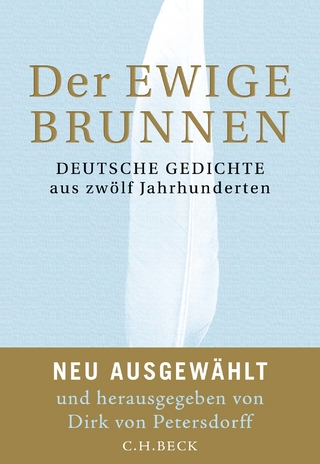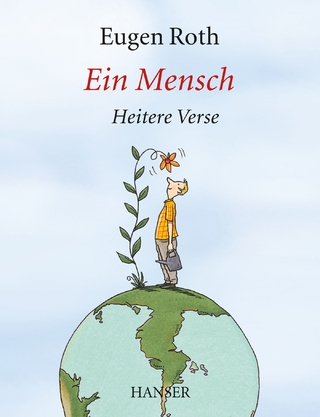
The Barbarians' Return
Seiten
2018
Bloodaxe Books Ltd (Verlag)
978-1-78037-204-4 (ISBN)
Bloodaxe Books Ltd (Verlag)
978-1-78037-204-4 (ISBN)
Mircea Dinescu has been one of Romanian poetry's most provocative and obstinately singular poets for five decades. A one-time dissident, he's still writing necessary poems that challenge all systems.
For the past 50 years, Mircea Dinescu has been one of Romanian poetry's most provocative and obstinately singular poets. After starting out as a writer of highly musical poetry that he spun round in his fingers with the aplomb of a magician who refuted reality, he ended up stuck in free verse, impelled mainly because of the surrealism of a world in which the label and the content of any box seldom matched. After his first gratuitous exercises when he was 22 and striving to commit himself to love poetry, he was surprised to discover that he had created a poetry of sly political allusion. He was like that communist worker employed in a factory producing bicycle parts who, stealing a tiny wheel one day, a few nuts and bolts on another, a gear, then taking home a chain and a length of pipe, until finally realising to his amazement that however he assembled these parts, instead of a bicycle the result was a Russian machine gun. The dictator at whom Dinescu shot his metaphors was eventually shot with real bullets by his own henchmen. Unlike Dinescu, those men were able to see the difference between a bicycle and a machine gun: later on, disguising themselves as anti-communists, they pedalled their bicycles into the brave new consumer society. A quarter of a century and more since the fall of communism, Mircea Dinescu still hesitates to think of himself as witness, judge or defendant. Like an agile monkey, he jumps into and out of the handbook of literature, just as into and out of the handbook of history, where he is mentioned on page 16, in the chapter entitled Revolutions. In 1989, Dinescu was liberated from house arrest by a large crowd in Bucharest who carried him triumphantly to the national television building. There he announced to his country and the world, with actor Ion Caramitru, that the dictator had fled. The country changed almost overnight from communist to capitalist, but Dinescu carried on doing what he'd always done: writing necessary poems that challenge all systems.
For the past 50 years, Mircea Dinescu has been one of Romanian poetry's most provocative and obstinately singular poets. After starting out as a writer of highly musical poetry that he spun round in his fingers with the aplomb of a magician who refuted reality, he ended up stuck in free verse, impelled mainly because of the surrealism of a world in which the label and the content of any box seldom matched. After his first gratuitous exercises when he was 22 and striving to commit himself to love poetry, he was surprised to discover that he had created a poetry of sly political allusion. He was like that communist worker employed in a factory producing bicycle parts who, stealing a tiny wheel one day, a few nuts and bolts on another, a gear, then taking home a chain and a length of pipe, until finally realising to his amazement that however he assembled these parts, instead of a bicycle the result was a Russian machine gun. The dictator at whom Dinescu shot his metaphors was eventually shot with real bullets by his own henchmen. Unlike Dinescu, those men were able to see the difference between a bicycle and a machine gun: later on, disguising themselves as anti-communists, they pedalled their bicycles into the brave new consumer society. A quarter of a century and more since the fall of communism, Mircea Dinescu still hesitates to think of himself as witness, judge or defendant. Like an agile monkey, he jumps into and out of the handbook of literature, just as into and out of the handbook of history, where he is mentioned on page 16, in the chapter entitled Revolutions. In 1989, Dinescu was liberated from house arrest by a large crowd in Bucharest who carried him triumphantly to the national television building. There he announced to his country and the world, with actor Ion Caramitru, that the dictator had fled. The country changed almost overnight from communist to capitalist, but Dinescu carried on doing what he'd always done: writing necessary poems that challenge all systems.
Mircea Dinescu is one of Romania's leading poets. By the late 1980s he and his work were seen as controversial and confrontational, and his final book before the revolution of 1989 could only be published abroad. In 1989 he was liberated from house arrest by a large crowd in Bucharest who carried him triumphantly to the national television building. There he announced to his country and the world that the dictator had fled. Since then he has avoided compromising himself by writing for a satirical political magazine, has mocked at history by starring in a gastronomic TV show called Politics and Delicatessen, raised goats and set up his own personal winery.
| Erscheinungsdatum | 07.05.2018 |
|---|---|
| Übersetzer | Adam J. Sorkin, Lidia Vianu |
| Verlagsort | Tyne and Wear |
| Sprache | englisch |
| Maße | 138 x 216 mm |
| Themenwelt | Literatur ► Lyrik / Dramatik ► Lyrik / Gedichte |
| ISBN-10 | 1-78037-204-3 / 1780372043 |
| ISBN-13 | 978-1-78037-204-4 / 9781780372044 |
| Zustand | Neuware |
| Haben Sie eine Frage zum Produkt? |
Mehr entdecken
aus dem Bereich
aus dem Bereich
Deutsche Gedichte aus zwölf Jahrhunderten
Buch | Hardcover (2023)
C.H.Beck (Verlag)
28,00 €


